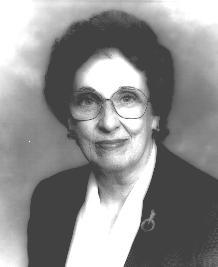Page 219
[Begin Tape 1, Side A]
Clark: Okay. I wanted to ask you a follow-up question from our last evening's discussions about HEW. You mentioned that Joe Califano had called on you because of an episode he witnessed in which you were very tough during the Johnson administration. What was that episode?
Shanahan: It was in the latter days of the Johnson administration when the Vietnam War had become an enormous controversy. And Califano called meóor his secretary, I guessóand said, "Mr. Califano would like to see you," at some hour, 4:30, something like that. That sort of thing happened occasionally, when you worked for the New York Times.
So I went over and sat in what was then the press waiting room, right in the East Wing. And I waited and I waited and I waited. And the secretary came out a couple times to say, "Mr. Califano will be with you shortly." And then finally after well over an hour of waiting, a different secretary comes out and says, "The president will see you now."
It's the only time in my life I have ever been alone in a room with a president of the United States, and I'm here to tell you it's intimidating. Of course, Johnson could be intimidating. I knew him the way a reporter knows people, from his years as Senate majority leader. I had a lot of access to him, becauseóI think the reason that I had the access was that since I was covering economics and not what a whole bunch of other reporters were covering, my guess is that he saw me a lot because he knew I might be bringing him the first news of something he needed to know about: something that was going on in the House or something that was going on in the administration. Also, he liked smart women.
In any event, I knew Johnson. I had certainly not been in any small group with Johnson since he became presidentóor certainly not alone. And to walk into that Oval Office and realize, "There ain't nobody here but you and the president of United States," I think that would intimidate you even with a weak-personality president, if there is such a thing.
Anyway, he started talking about the budget, basically talking about the budget for the Vietnam War and what it was costing and was trying to make the case that it wasn't costing as much as people think. We're talking dollars here, not lives. And as he talked, I sort of knew his numbers were wrong, but I didn't have the numbers in my head because I hadn't expected to get into this with the presidentóor even Joe. I didn't know why Joe had wanted to see me but that sort of thing wasn't that rareónot with me but I knew that Califano often talked to reporters.
And Johnson went on at great length talking about, and giving me, all kinds of numbers. And I asked some questions that weren't terribly good questions because I wasn't able to say: But your own budget says X, because I hadn't looked at it in a long time. Anyway, I'm not quite sure how long I was in his office; it seemed like forever. It was probably on the order of fifteen or twenty minutes. And all this, by the way, he put this on a deep-background basis, which is a real trap for journalists.
Clark: What does that mean?
Shanahan: It means much more than merely that you can't say it's the presidentóthat would be on the record. You can't say even "a high administration official." You just have to write it on your own. Here are the facts. And then the facts, or alleged facts, they have given you. So it's a terrible trap if they aren't being truthful.

